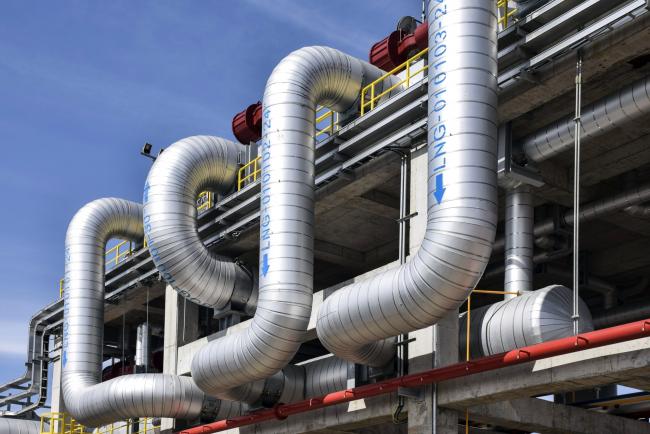(Bloomberg) -- Plans in Australia to import gas to ease a supply squeeze may fail to bring down domestic prices as it pits the nation against some of the world’s biggest buyers for supplies.
Australia finds itself in the odd position of having to consider four projects to import liquefied natural gas while simultaneously being on track to become the world’s biggest exporter of the fuel. The country holds abundant gas in the west, but exports and exploration restrictions in the more-populous east have caused supply to tighten and prices to rise, triggering angst among buyers and putting pressure on politicians.
“Import terminals in principle are fine in that they add more supply and more suppliers,” said Malcolm Roberts, head of Australia’s top oil and gas industry group, APPEA. But they won’t lower prices, he said.
Gas users in Australia need to stop hankering for a return to prices in the mid-single digits because it’s not going to happen, Roberts said in an interview. Importers likely won’t be able to sell the fuel for any less than producers in Queensland, the source of east coast LNG exports. After the cost of liquefaction and shipping is stripped out -- the so called “netback” price -- that has averaged about A$12.20 per gigajoule (about $9.30 per million British thermal units) this year, according to government estimates.
Wholesale gas on the east coast rose by around 20 percent over the period from 2015 to 2017, according to Department of Energy statistics. The upward pressure is expected to continue in the longer term as depleting fields in the Bass Strait offshore Victoria are replaced by onshore gas from the eastern state of Queensland, which is extracted from coal seams and more expensive to produce.
Bad News
The cost of importing gas as LNG works out broadly the same as transporting Queensland gas by pipeline, according to Saul Kavonic, an analyst at Credit Suisse (SIX:CSGN) Group AG.
That’s bad news for customers, including explosives and fertilizer manufacturers such as Orica Ltd. and Incitec Pivot Ltd., which has warned it may have to close some of its operations if it can’t secure ”economical” gas.
Australian Industrial Energy, a consortium including Jera Co. and Marubeni Corp. needs to secure gas in the range of A$10-A$12 per gigajoule for its import project south of Sydney, to be viable. James Baulderstone, chief executive officer at AIE, says very little gas can be delivered below that price from Australia’s reserves given the remote locations and nature of the gas being extracted.
Importing LNG is cheaper upfront than the billions of dollars required to develop new gas fields, says Baulderstone. He says he can feed 100 petajoules of gas -- enough to supply about 75 percent of New South Wales state’s annual demand -- into the market years earlier and at a fraction of the cost.
State bans on unconventional gas exploration are seen by many in the industry as an impediment to bringing new reserves into the market. As well, the federal government isn’t against the idea of importing gas, in theory, but would prefer a domestic supply response.
“If an import terminal can deliver gas at a competitive price, that is a good thing for consumers,” Resources Minister Matthew Canavan said in an emailed comment. “The first best outcome, however, would be for states to develop their own gas resources.”
The advantage of LNG imports is that customers can secure long-term supply, according to Kym Winter-Dewhirst, managing director at Venice Energy, which is planning an import project in South Australia. “With domestic gas you’re struggling to get more than two years. So what we’re offering is more certainty to customers.”
Mark Samter, an analyst at MST Marquee, agrees, saying he’s surprised, given the bullish long-term price outlook, that industrial buyers have so far been reluctant to lock in the five-year contract terms being offered by the importers.
